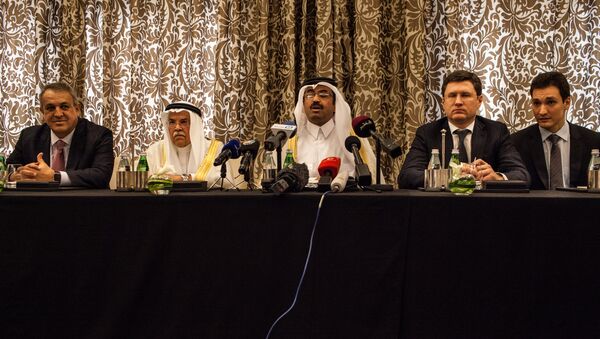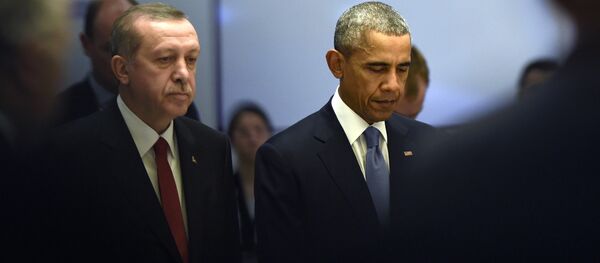According to Joukar, the Gulf Kingdom hoped to see that Russia would force Iran to make concessions in Syria and reduce Tehran's oil output levels.
"By shifting the blame [for failing to reach an agreement on freezing oil production] to Russia and Iran, Riyadh saw an opportunity to stir relations between the two countries. Saudi Arabia expected that Russia would put pressure on Iran in several different areas: cooperation on the Syrian front, military partnership and cooperation on stabilizing the situation in the Middle East," the Iranian oil expert told Sputnik.
Saudi Arabia's aggressive foreign policy puts pressure on global oil prices, causing them to fall, Joukar said.
He added that although Saudi Arabia is interested in bringing oil prices up, they shouldn't be too high, because then it would be beneficial for North American shale oil producers. And Riyadh can't afford that, as it seeks to push shale oil producers out of the oil market.
At the same time, the Saudis aren't willing to lose their market share and that's why they refuse to cut down their oil production, Joukar explained.
Furthermore, by artificially keeping oil prices low Riyadh wanted to use the negative economic climate in Russia to make Moscow more cooperative. This, the Saudis hoped, would force Moscow to change its policies in Syria.
"[Riyadh] tried to include terrorist organizations into a list of Syrian opposition groups, which could participate in intra-Syrian talks. Divide into two groups: al-Nusra Front and Daesh, while simply taking Ahrar ash-Sham and Jaysh al-Islam out of the terrorist organization's list," Joukar told Sputnik.
Another thing to realize is that Saudi Arabia has a weak culture of diplomacy. If Riyadh has political disagreements with a country in one aspect, then it won't seek any cooperation with that country in other fields, even if it would benefit both countries.
In this situation, a lot will depend on Russia, as even after coming under pressure from Saudi Arabia, Moscow refused to put pressure on Iran. Although Russia is paying the economic price for its willingness to remain true to a good cause in Syria, Moscow gives priority to its political image. Russians are ready to work with any nation in the world that plays fair and isn't using various instruments of political pressure to get what they want, Joukar said.




